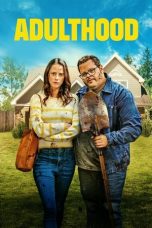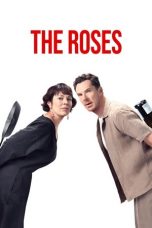Radio Days (1987) Review: A Nostalgic Tribute to the Golden Age of Radio
Radio Days is a 1987 film written and directed by Woody Allen, serving as a heartfelt homage to the golden age of radio. Set in the 1940s, this semi-autobiographical comedy-drama weaves together a series of vignettes that capture the impact of radio on the lives of a working-class Jewish family in Rockaway Beach, New York. With its blend of humor, nostalgia, and a stellar ensemble cast, Radio Days is a charming reflection on the power of storytelling and the magic of a bygone era.
Plot Summary: A Collection of Memories from a Bygone Era
Radio Days doesn’t follow a traditional plot structure. Instead, it is a collection of loosely connected stories and memories narrated by an adult Joe (voiced by Woody Allen), who reflects on his childhood experiences in the 1940s. The film focuses on Joe’s family and their everyday life, intertwined with the larger cultural impact of radio broadcasts during that time.
The narrative shifts between the lives of the characters in Joe’s family, including his parents (played by Julie Kavner and Michael Tucker), his eccentric Aunt Bea (Dianne Wiest), and various neighbors and acquaintances. Each vignette is tied together by the omnipresent influence of radio, which serves as both a source of entertainment and a connection to the outside world.
Through the lens of young Joe (played by Seth Green), the audience is introduced to the era’s iconic radio programs, from thrilling adventures and serial dramas to music broadcasts and news reports. The film captures the communal experience of gathering around the radio, a practice that united families and provided a sense of escape during challenging times.
Performance and Characterization: A Stellar Ensemble Cast
One of the strengths of Radio Days is its ensemble cast, which brings warmth and authenticity to the film’s nostalgic vignettes. Julie Kavner, best known as the voice of Marge Simpson, delivers a standout performance as Joe’s mother, a loving and pragmatic woman who tries to keep the family together amidst the chaos of daily life. Kavner’s portrayal is both humorous and heartfelt, capturing the essence of a devoted mother navigating the ups and downs of family dynamics.
Dianne Wiest shines as Aunt Bea, a single woman searching for love in a world where radio often serves as her companion. Wiest’s performance is both comedic and poignant, adding depth to the character’s romantic misadventures and longing for connection. Her role is a standout, embodying the film’s themes of yearning and the search for meaning.
Seth Green, in one of his earliest roles, plays the young Joe with a sense of wonder and curiosity that anchors the film. Through Joe’s eyes, the audience experiences the magic of radio and the profound impact it has on shaping his imagination and worldview. Green’s performance is endearing, providing a relatable perspective for viewers of all ages.
The film also features memorable performances from Mia Farrow as Sally White, a ditsy aspiring radio star, and Diane Keaton, who makes a cameo appearance as a glamorous singer. The ensemble cast’s chemistry and commitment to their roles create a vivid and engaging portrait of life during the radio era.
Direction and Cinematography: A Visual and Auditory Nostalgia Trip
Woody Allen’s direction in Radio Days is infused with a deep sense of nostalgia and affection for the period. The film’s episodic structure allows Allen to explore a wide range of experiences and emotions, from the comedic to the sentimental. Each vignette is crafted with care, reflecting the director’s love for the era and its cultural significance.
The cinematography by Carlo Di Palma captures the vibrant, sepia-toned world of 1940s New York, evoking a sense of warmth and familiarity. The film’s visual style is reminiscent of old photographs, with soft lighting and rich colors that enhance the nostalgic atmosphere. The use of long takes and fluid camera movements gives the film a dreamlike quality, as if the audience is peering into the past through a lens of memory.
The soundtrack, composed of popular songs from the 1930s and 1940s, plays a crucial role in setting the tone and enhancing the film’s nostalgic appeal. The music, along with the iconic radio broadcasts featured throughout the film, transports viewers to a time when radio was the primary source of entertainment and information. The soundtrack serves as both a narrative device and a tribute to the era’s cultural landscape.
Themes and Social Commentary: The Power of Radio and Storytelling
At its core, Radio Days is a film about the power of storytelling and the role of media in shaping our lives. Through the lens of radio, the film explores themes of memory, nostalgia, and the ways in which media can both reflect and influence society. The radio programs featured in the film, ranging from dramatic serials to live news broadcasts, serve as a window into the hopes, fears, and aspirations of the era.
The film also touches on the idea of escapism, showing how radio provided a form of solace and entertainment during difficult times. For the characters in Radio Days, radio is more than just a source of background noise; it is a vital part of their daily lives, offering a connection to the world beyond their immediate surroundings. The film’s depiction of radio as a unifying force highlights its role in creating a shared cultural experience, something that resonates with audiences even in the age of digital media.
Where to Watch Radio Days Online
For those looking to revisit or discover Radio Days, the film is available on several streaming platforms in the United States:
Streaming Services
- HBO Max: Radio Days is available on HBO Max, offering subscribers the opportunity to stream the film in high definition as part of their subscription.
- Amazon Prime Video: The film can also be streamed on Amazon Prime Video, either included with a subscription or available for rental/purchase.
- Criterion Channel: Depending on availability, Radio Days might be part of the Criterion Channel’s collection, which specializes in classic and critically acclaimed films.
Rental/Purchase Streaming Services
- Apple iTunes: Radio Days can be rented or purchased on Apple iTunes, allowing viewers to watch on a variety of Apple devices.
- Google Play Movies: Google Play Movies offers the film for rent or purchase, providing another flexible option for viewers.
- Vudu: Vudu is another platform where Radio Days is available for rent or purchase, known for its high-quality streaming options.
- YouTube Movies: The film can also be rented or purchased through YouTube Movies, making it easy to watch directly through the YouTube platform.
Final Thoughts: A Heartwarming Tribute to a Bygone Era
Radio Days is a film that resonates with anyone who has ever been captivated by the magic of storytelling, whether through radio, television, or other forms of media. Woody Allen’s nostalgic tribute to the golden age of radio is both a love letter to the past and a reflection on the enduring power of shared cultural experiences.
With its engaging ensemble cast, evocative cinematography, and a soundtrack that transports viewers back to the 1940s, Radio Days is a film that offers both humor and heart. It captures the essence of a time when families gathered around the radio to listen to stories that would spark their imaginations and bring them together, even in the face of adversity.
For those who appreciate films that blend nostalgia with humor and insight, Radio Days is a must-watch. Its availability on various streaming platforms makes it easier than ever to enjoy this charming and poignant celebration of a bygone era.
















